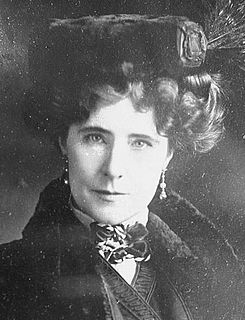A Quote by A. E. Housman
On occasions, after drinking a pint of beer at luncheon, there would be a flow into my mind with sudden and unaccountable emotion, sometimes a line or two of verse, sometimes a whole stanza, accompanied, not preceded by a vague notion of the poem which they were destined to form a part of.... I say bubble up because, so far as I could make out, the source of the suggestions thus proffered to the brain was the pit of the stomach.
Related Quotes
Performance is really an important part of how I edit. I sometimes take something out because I realize I put in a joke just to be funny and the audience laughed, but I should be ashamed of myself. I sometimes take out sentences, which are perfectly fine on paper, just because they don't flow when I say them out loud. I always read my work out loud now.
Evil is thus a kind of parasite on goodness. If there were no good by which to measure things, evil could not exist. Men sometimes forget this, and say, there is so much evil in the world that there cannot be a God. They are forgetting that, if there were no God, they would have no way of distinguishing evil from goodness. The very concept of evil admits and recognizes a Standard, a Whole, a Rule, an Order. Nobody would say that his automobile was out of order if he did not have a conception of how an automobile ought to run.
do you not feel that sometimes in life one's friendships begin by antipathy - sometimes by indifference - and sometimes by that sudden magnetism of sympathy as if in some former life we had been very near and dear, and were only picking up the threads again, and to such two souls there is no feeling that they are strangers.
I remembered my New Orleans days, living on two five-cent candy bars a day for weeks at a time in order to have leisure to write. But starvation, unfortunately, didn't improve art. It only hindered it. A man's soul was rooted in his stomach. A man could write much better after eating a porterhouse steak and drinking a pint of whiskey than he could ever write after eating a nickel candy bar. The myth of the starving artist was a hoax.
Freud believed that our dreams sometimes recapitulate a speech, a comment we've heard or something that we've read. I always had compositions in my dreams. They would be a joke, a piece of a novel, a witticism or a piece of dialogue from a play, and I would dream them. I would actually express them line by line in the dream. Sometimes after waking up I would remember a snatch or two and write them down. There's something in me that just wants to create dialogue.
Sometimes I feel as though there are two me's, one coasting directly on top of the other: the superficial me, who nods when she's supposed to nod and says what she's supposed to say, and some other, deeper part, the part that worries and dreams... Most of the time they move along in sync and I hardly notice the split, but sometimes it feels as though I'm two whole different people and I could rip apart at any second.
My mind seems to have become a kind of machine for grinding general laws out of large collections of facts, but why this should have caused the atrophy of that part of the brain that alone on which the higher tastes depend, I cannot conceive. A man with a mind more highly organised or better constituted than mine would not, I suppose, have thus suffered, and if I had to live my life over again, I would have made a rule to read some poetry and listen to some music at least once every week; for perhaps the parts of my brain now atrophied would thus have been kept alive through use.






































